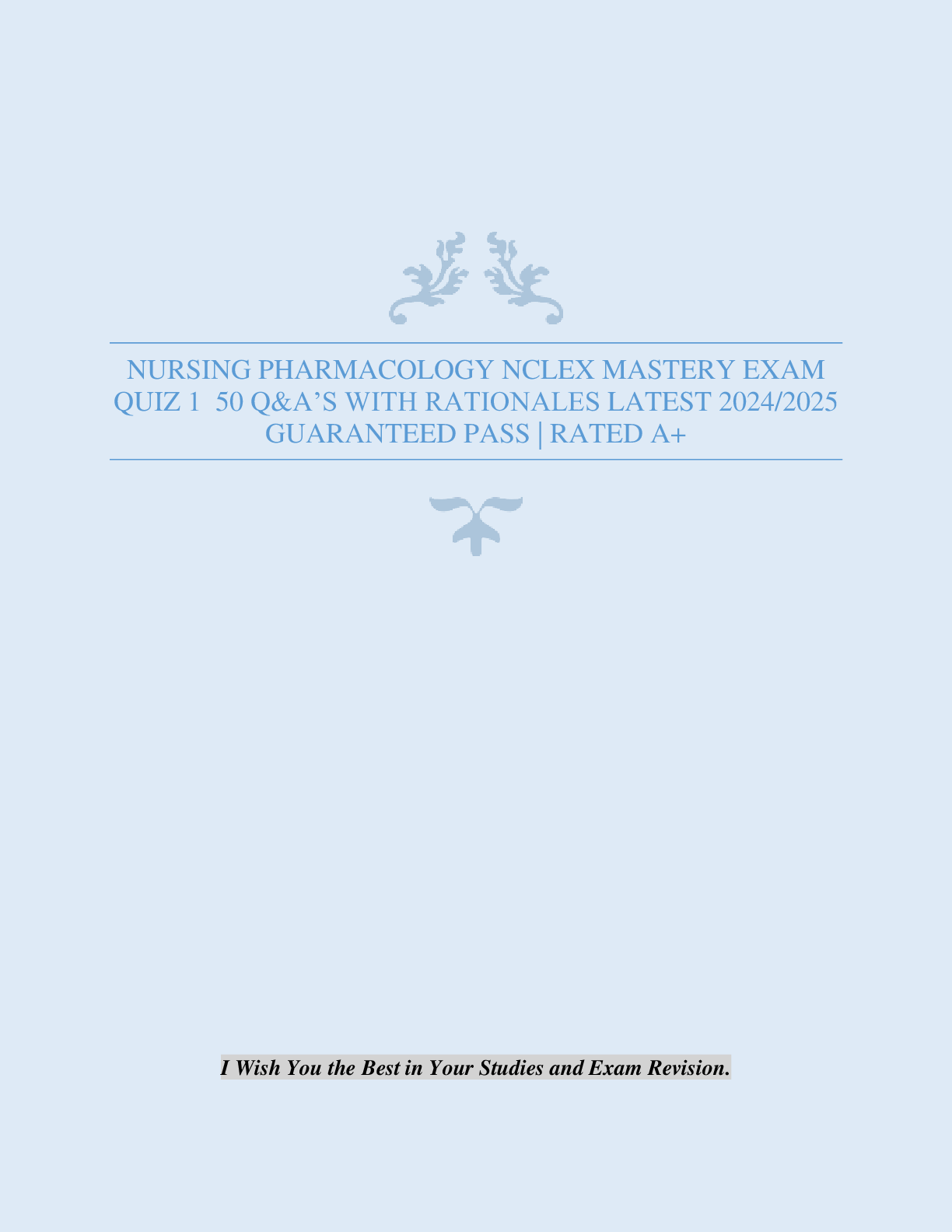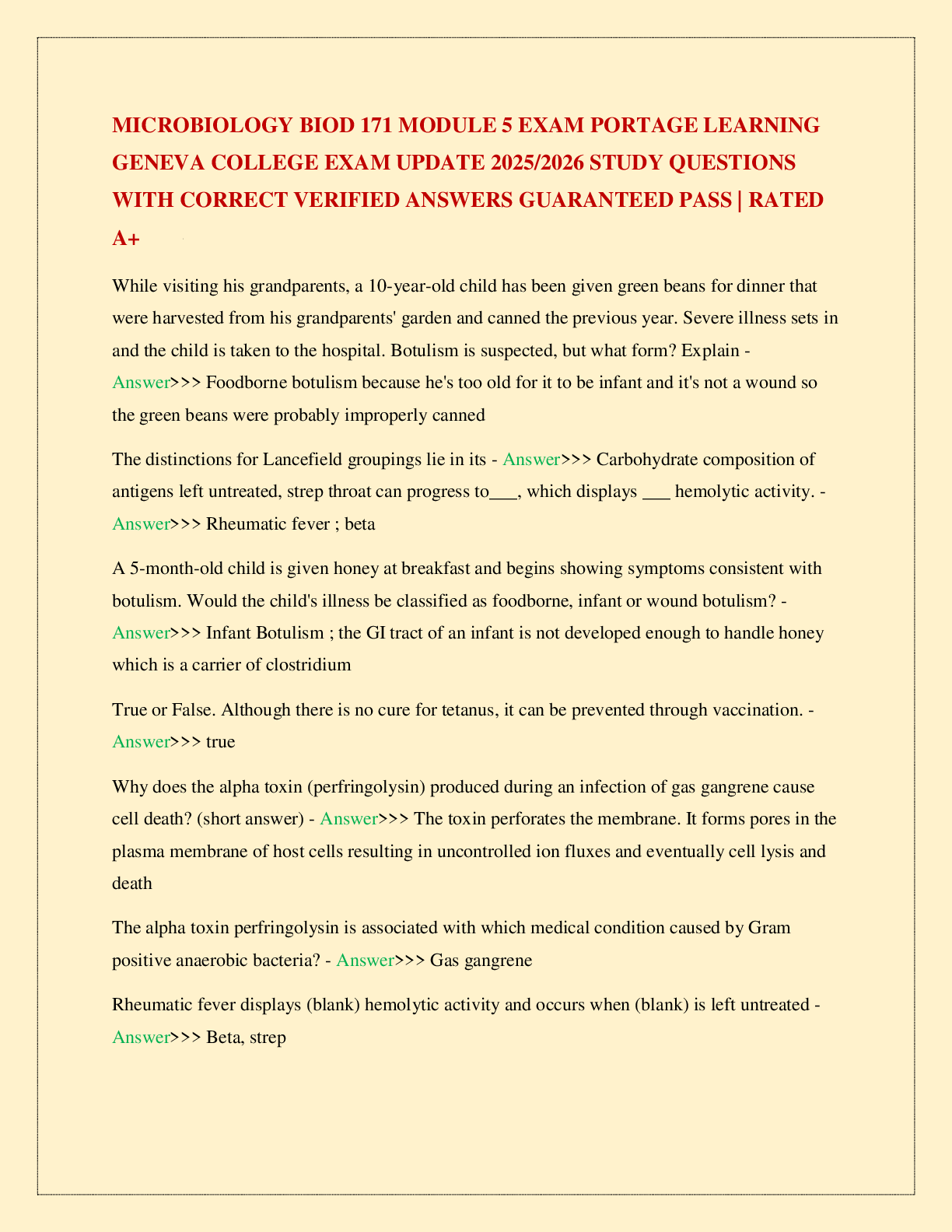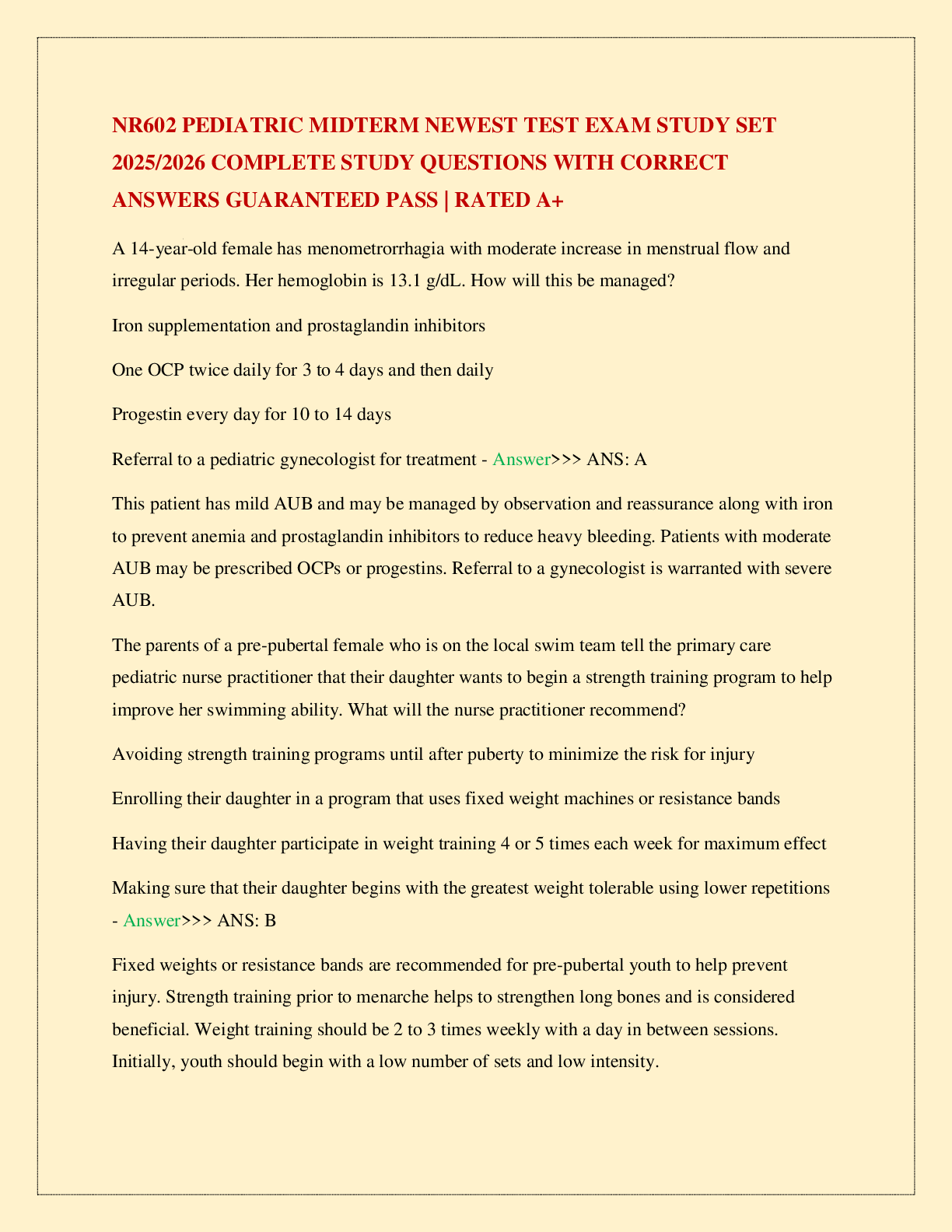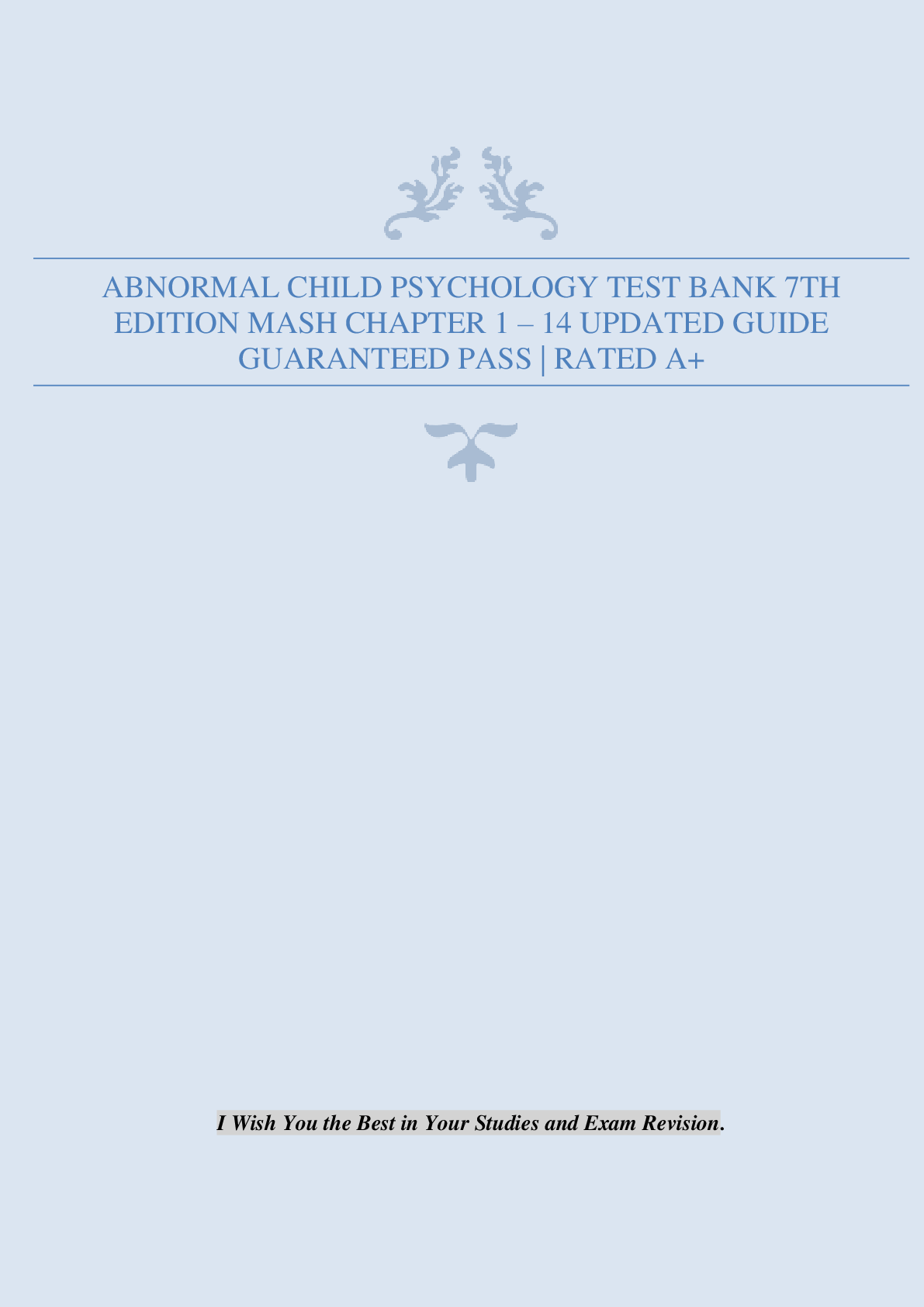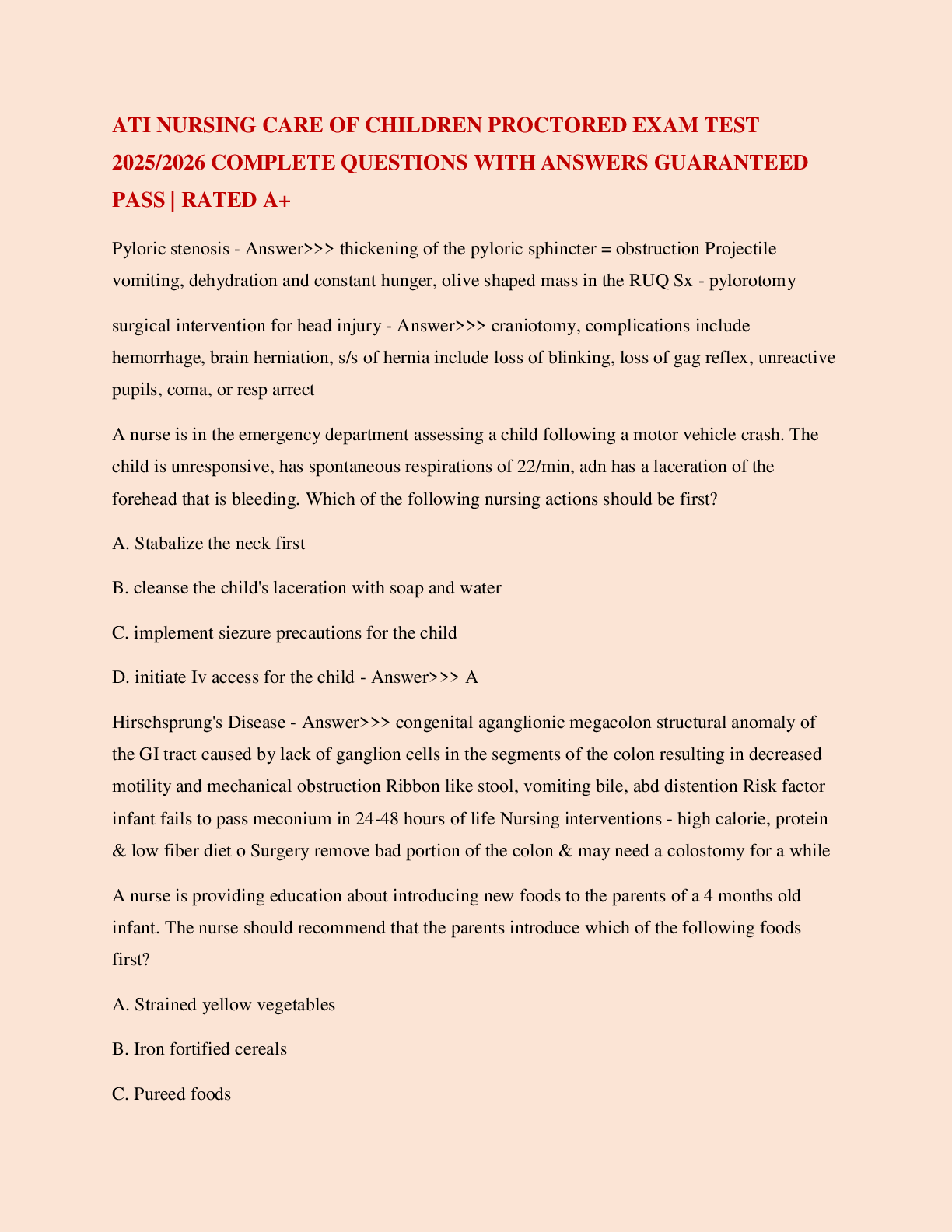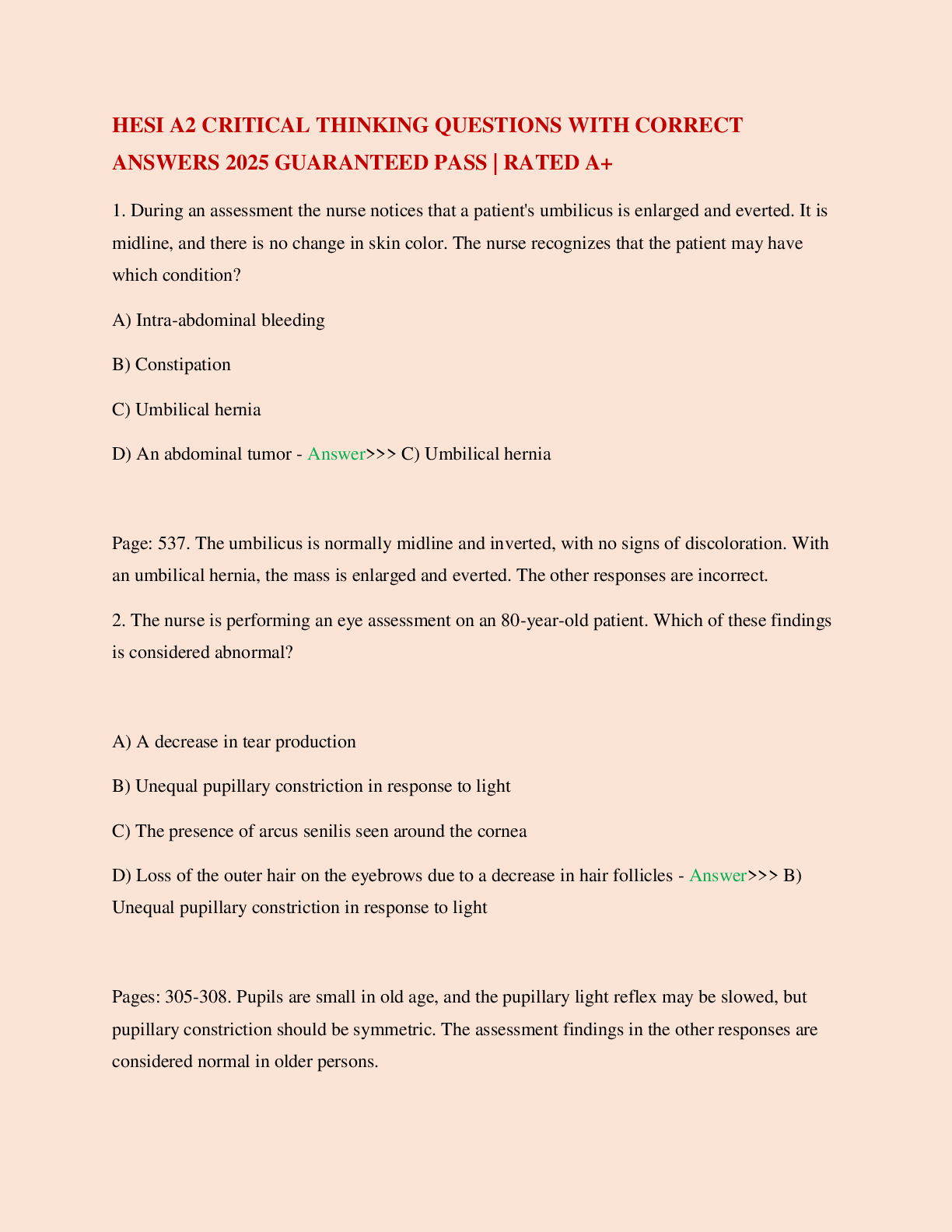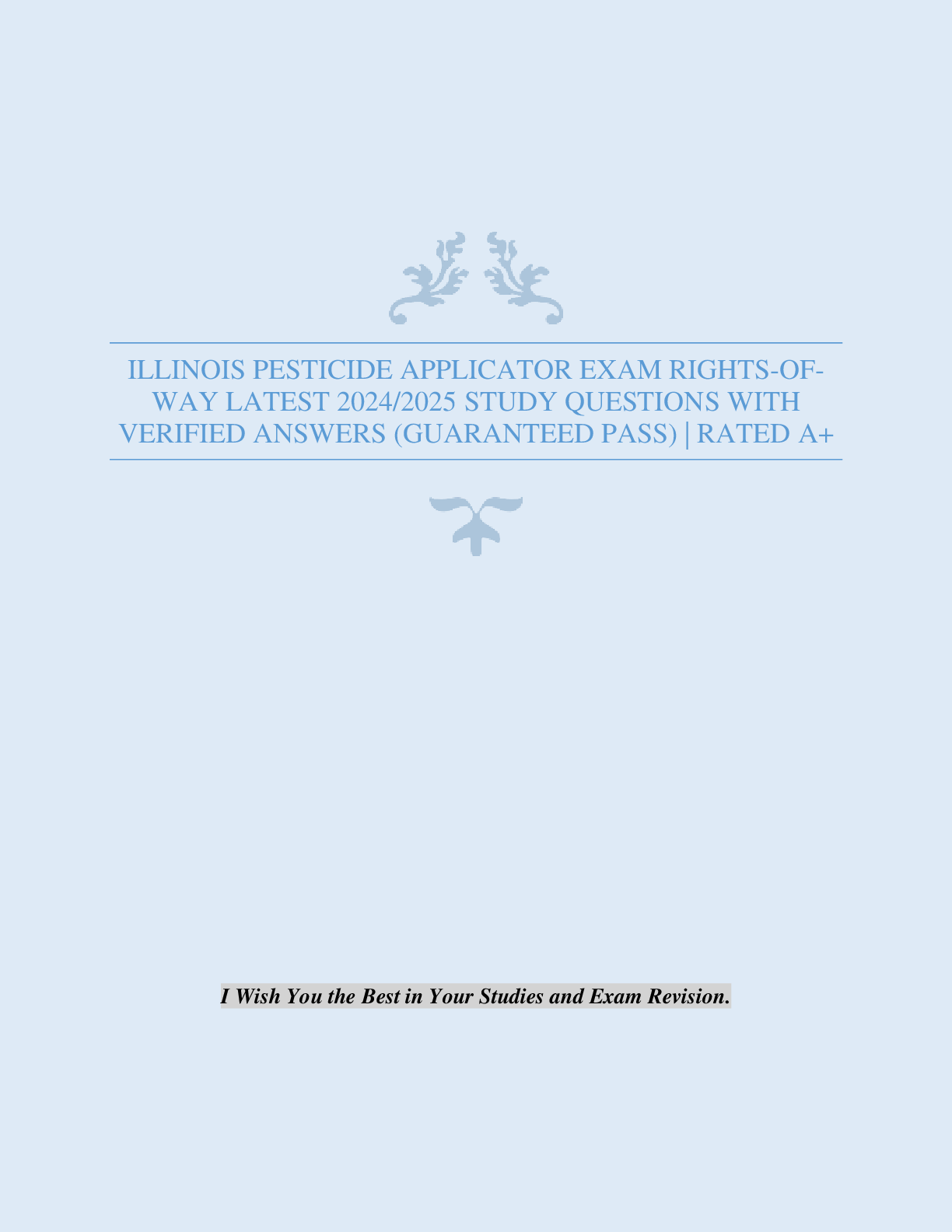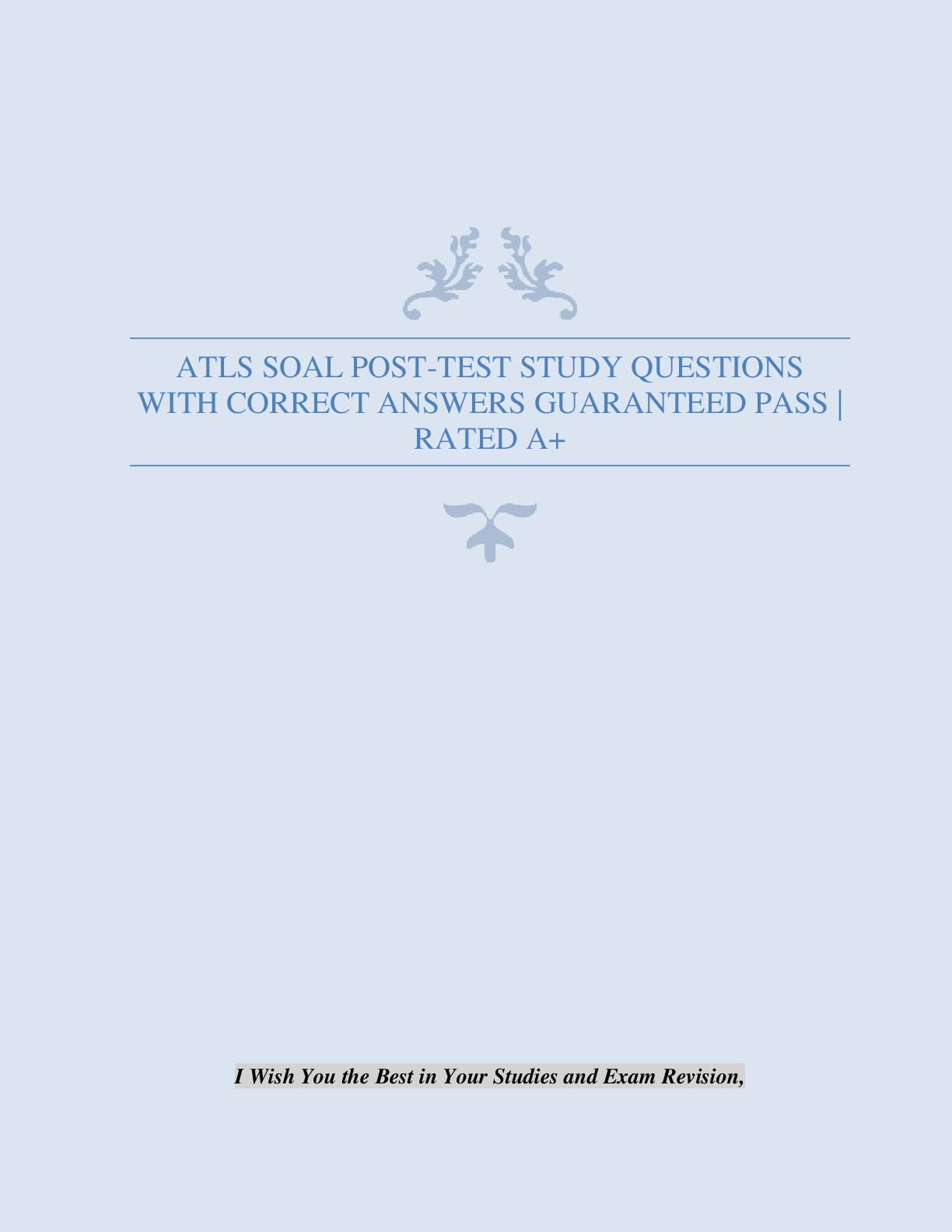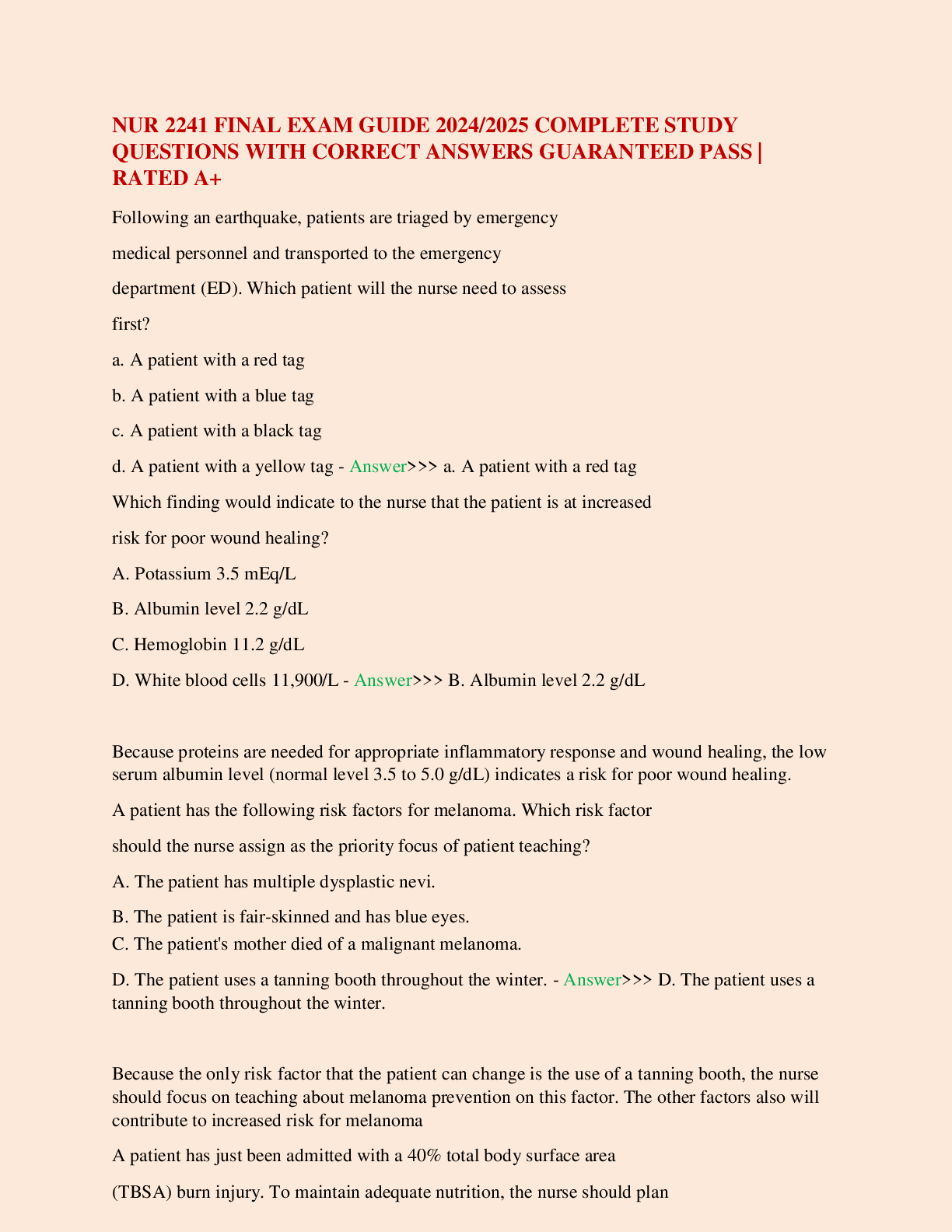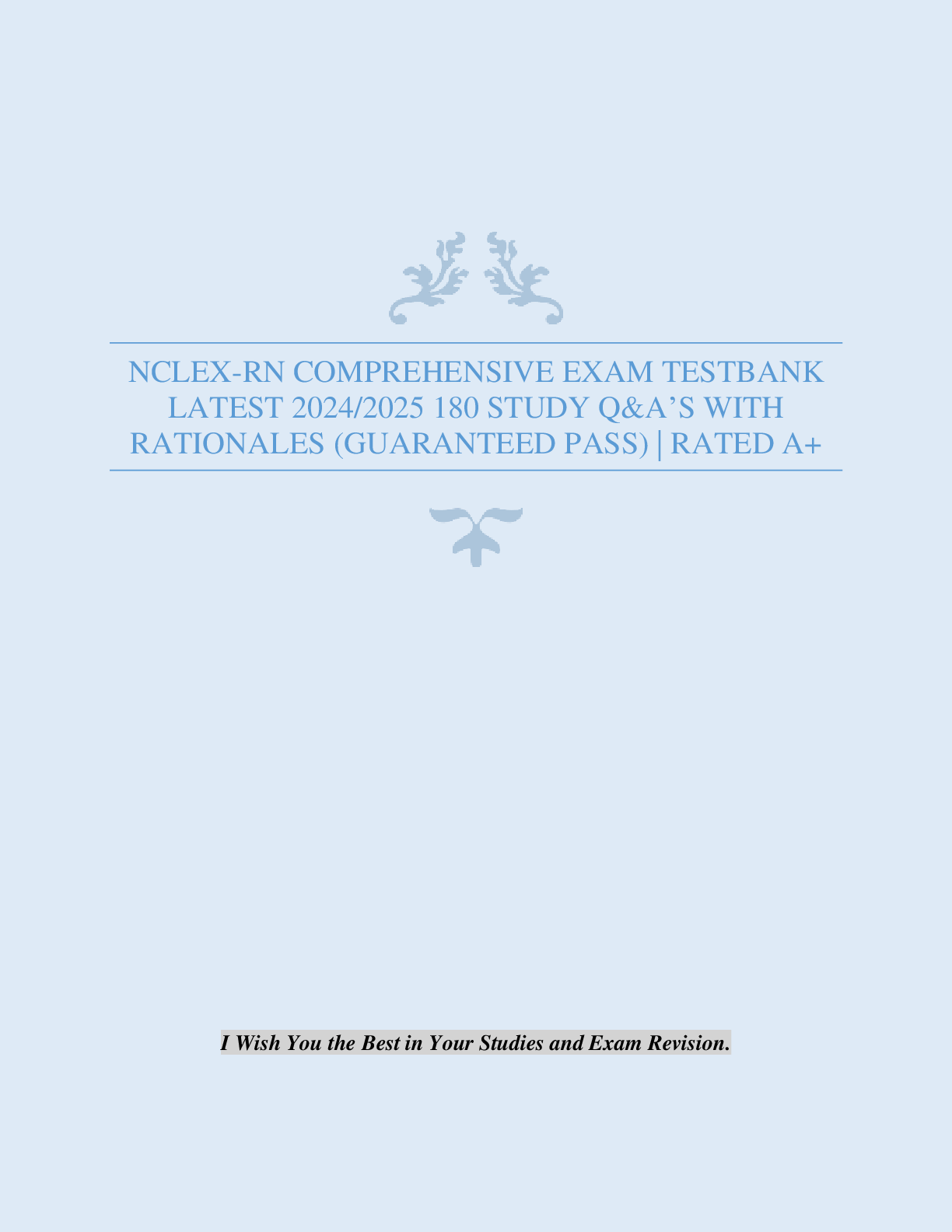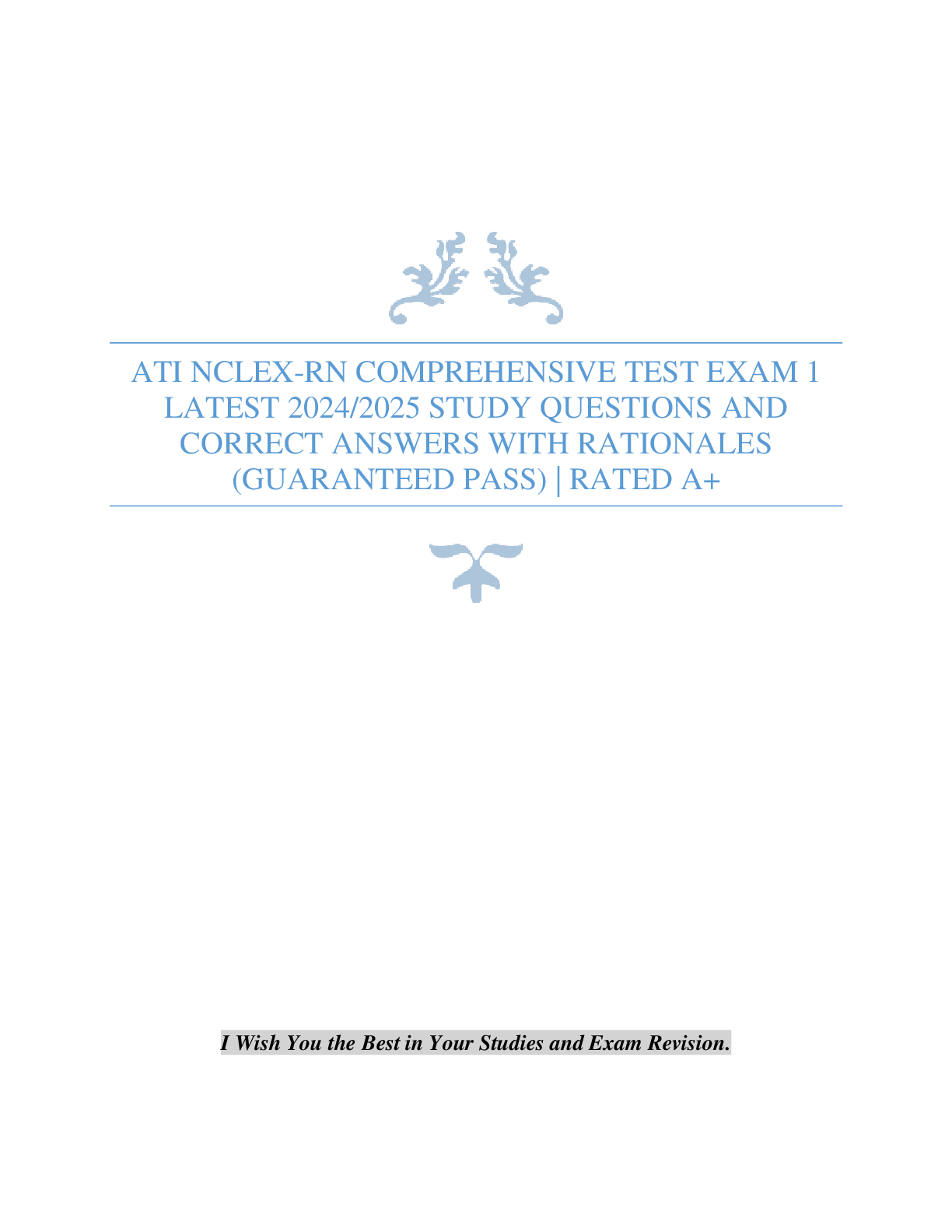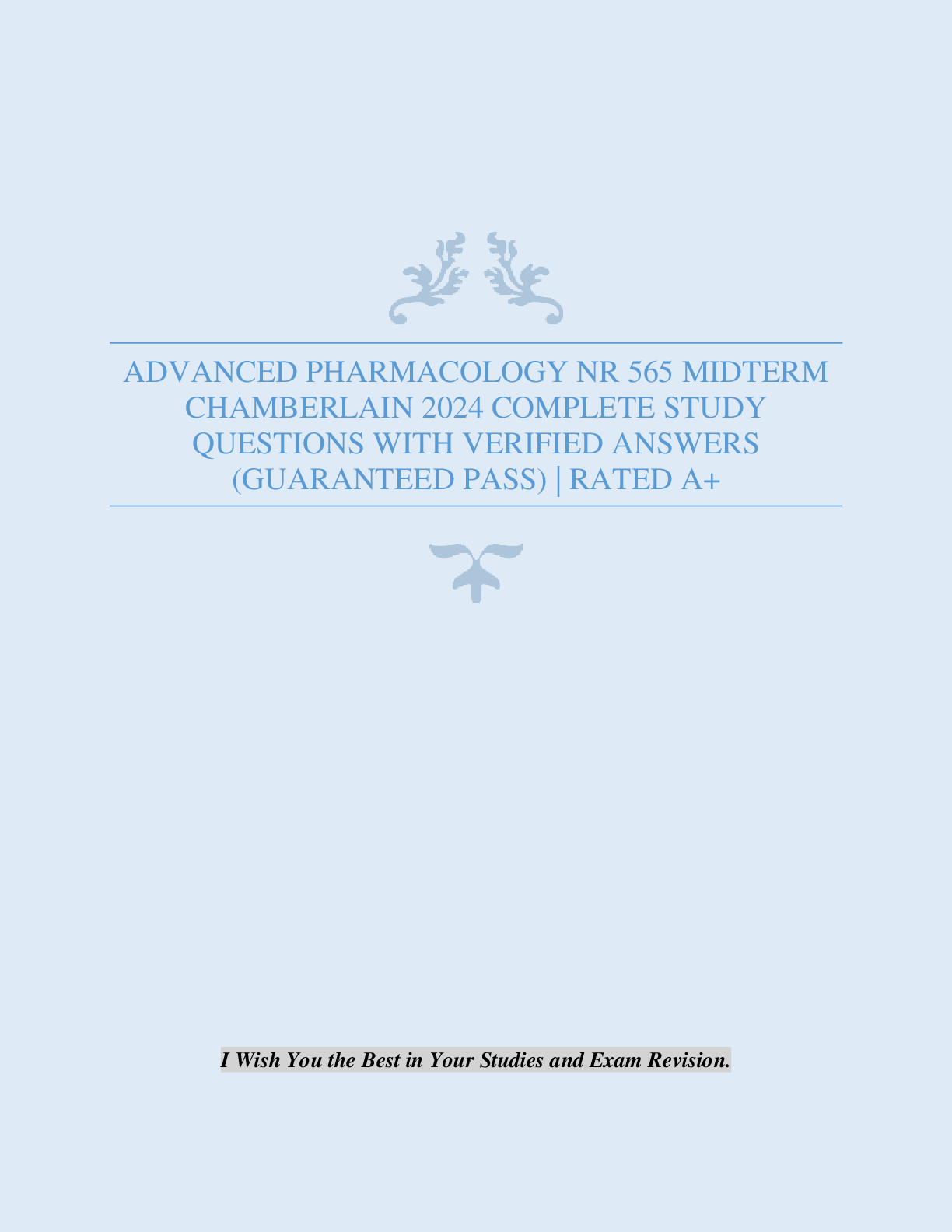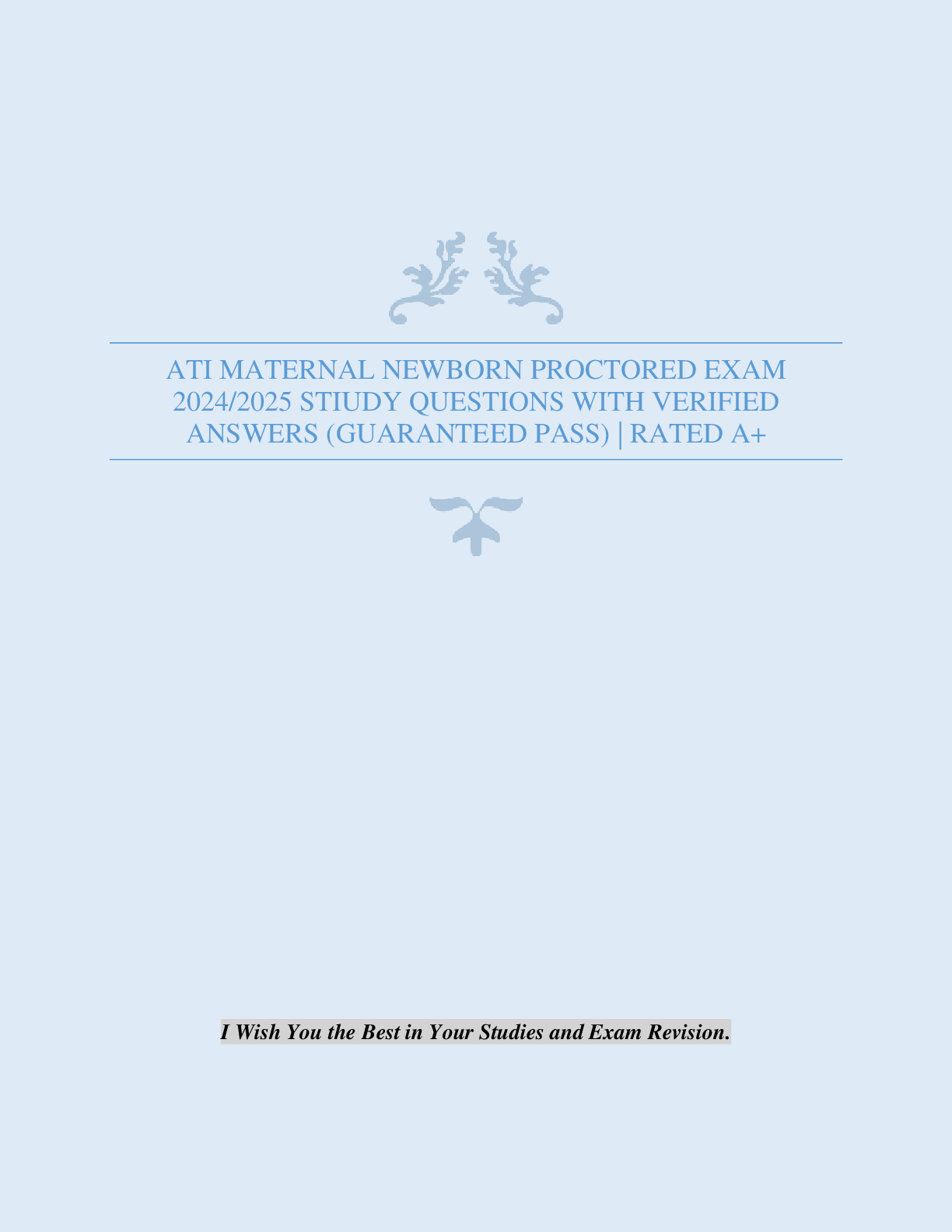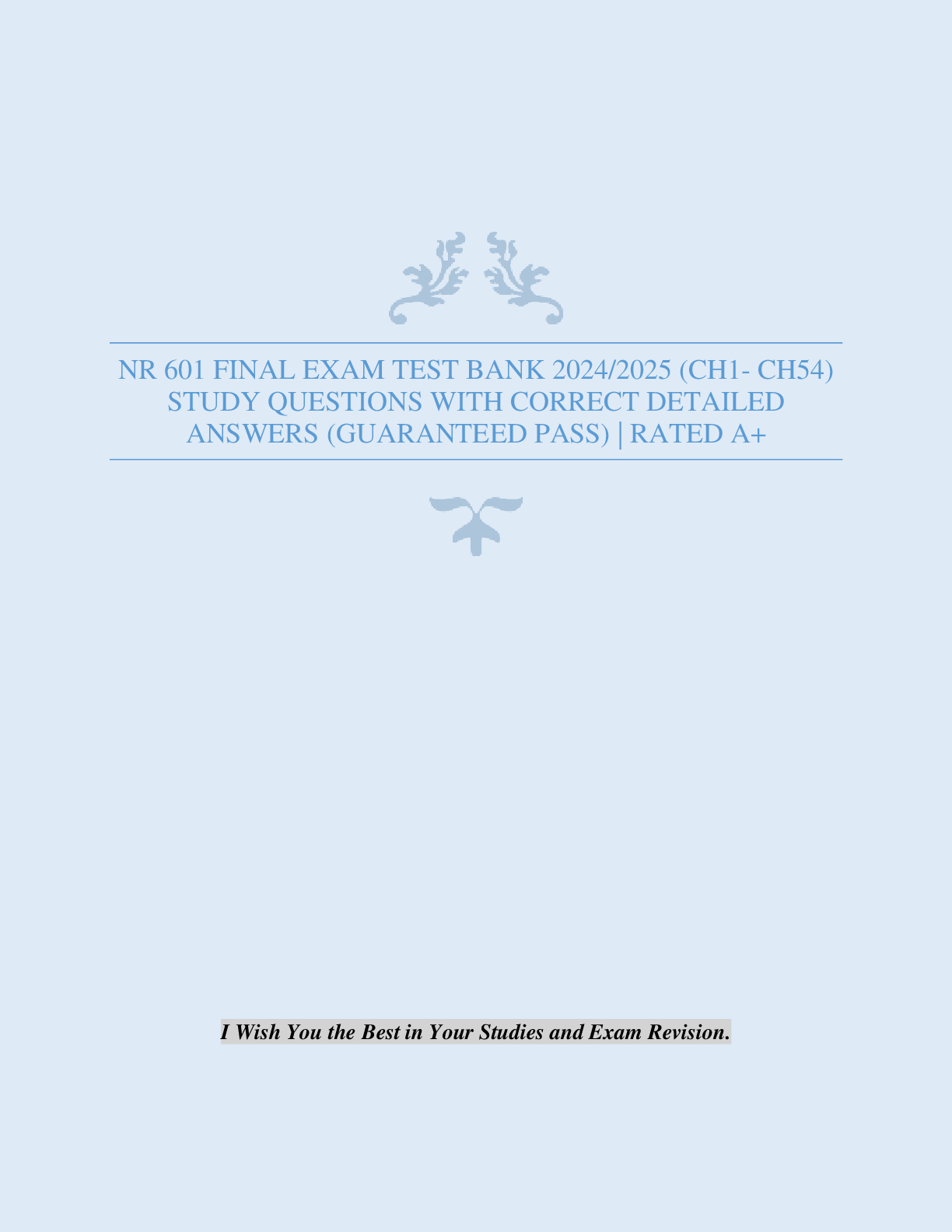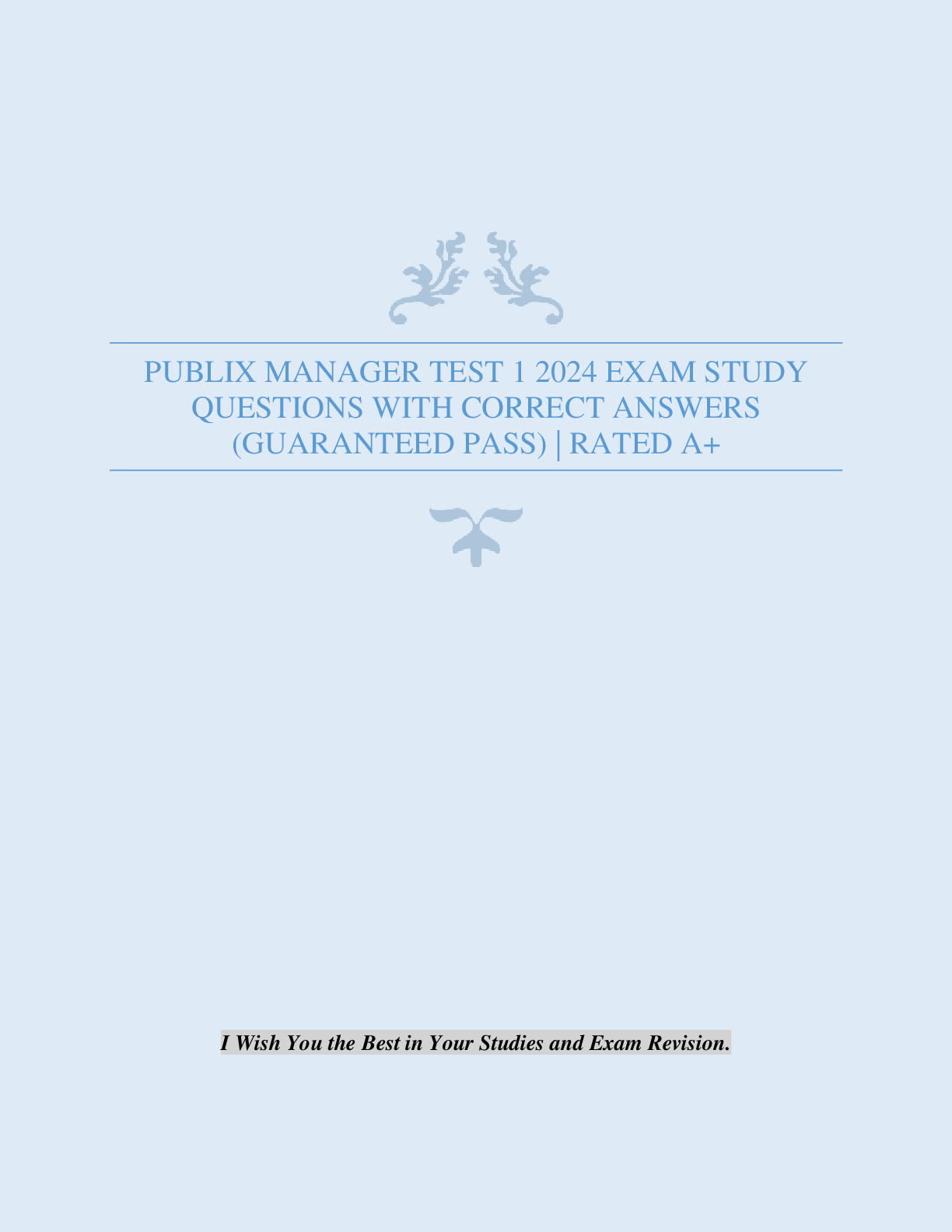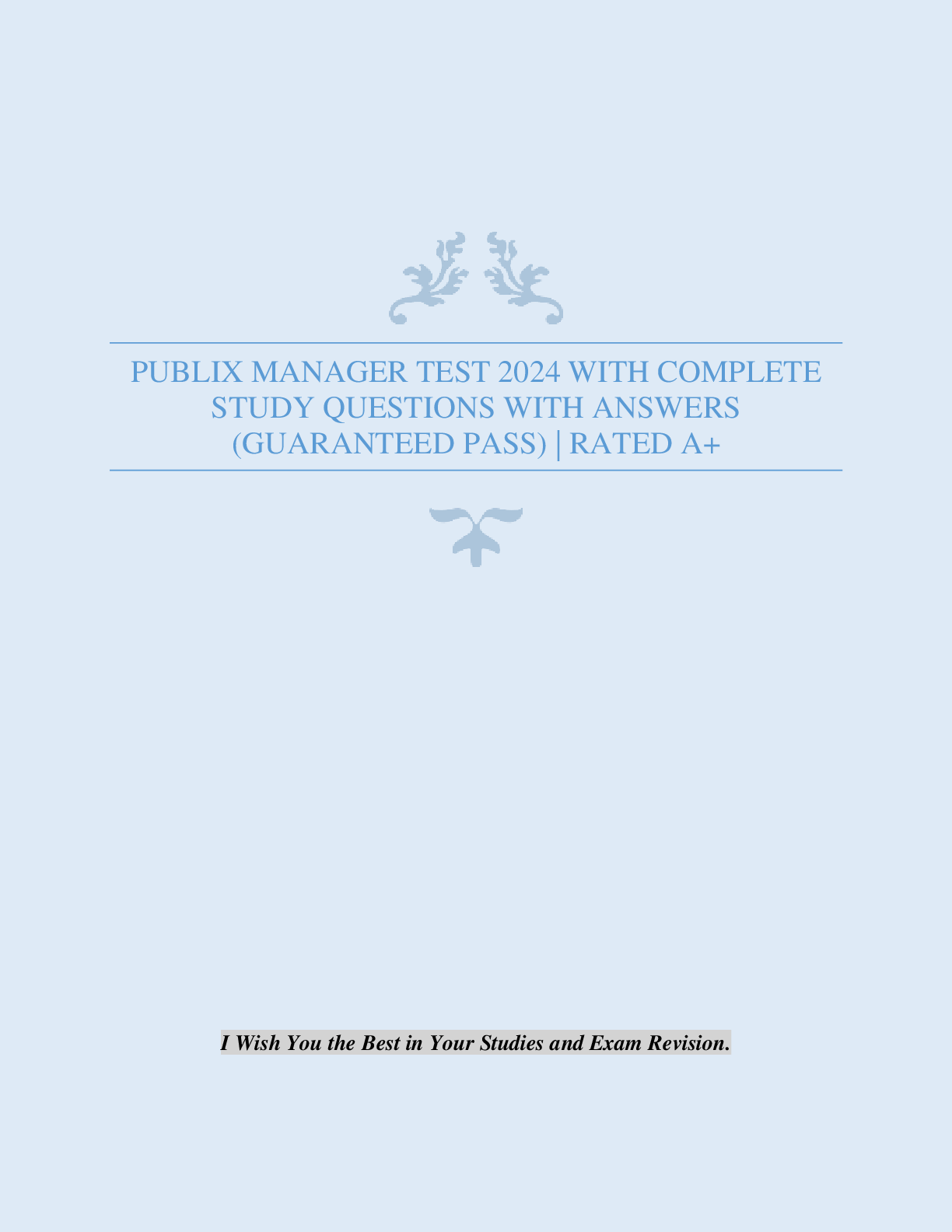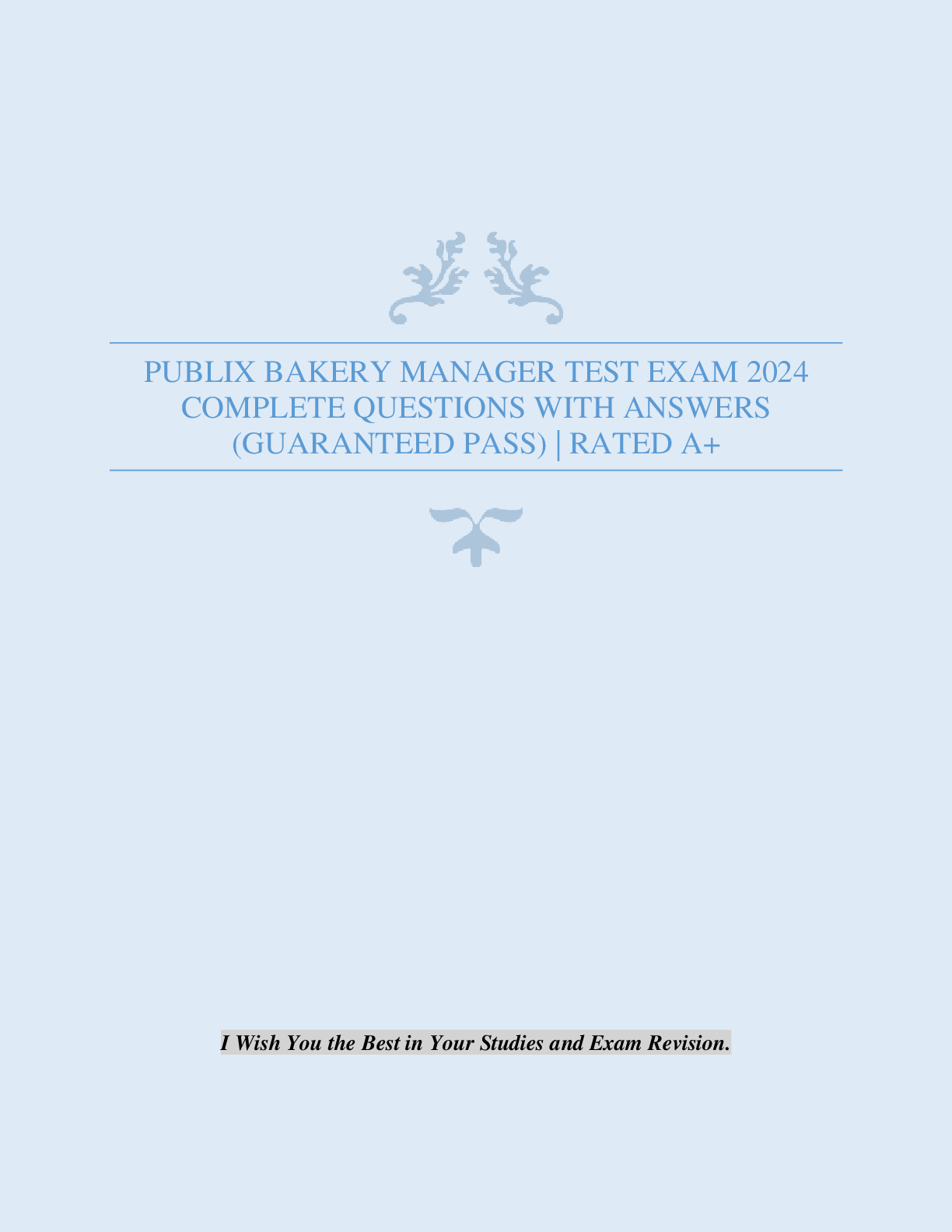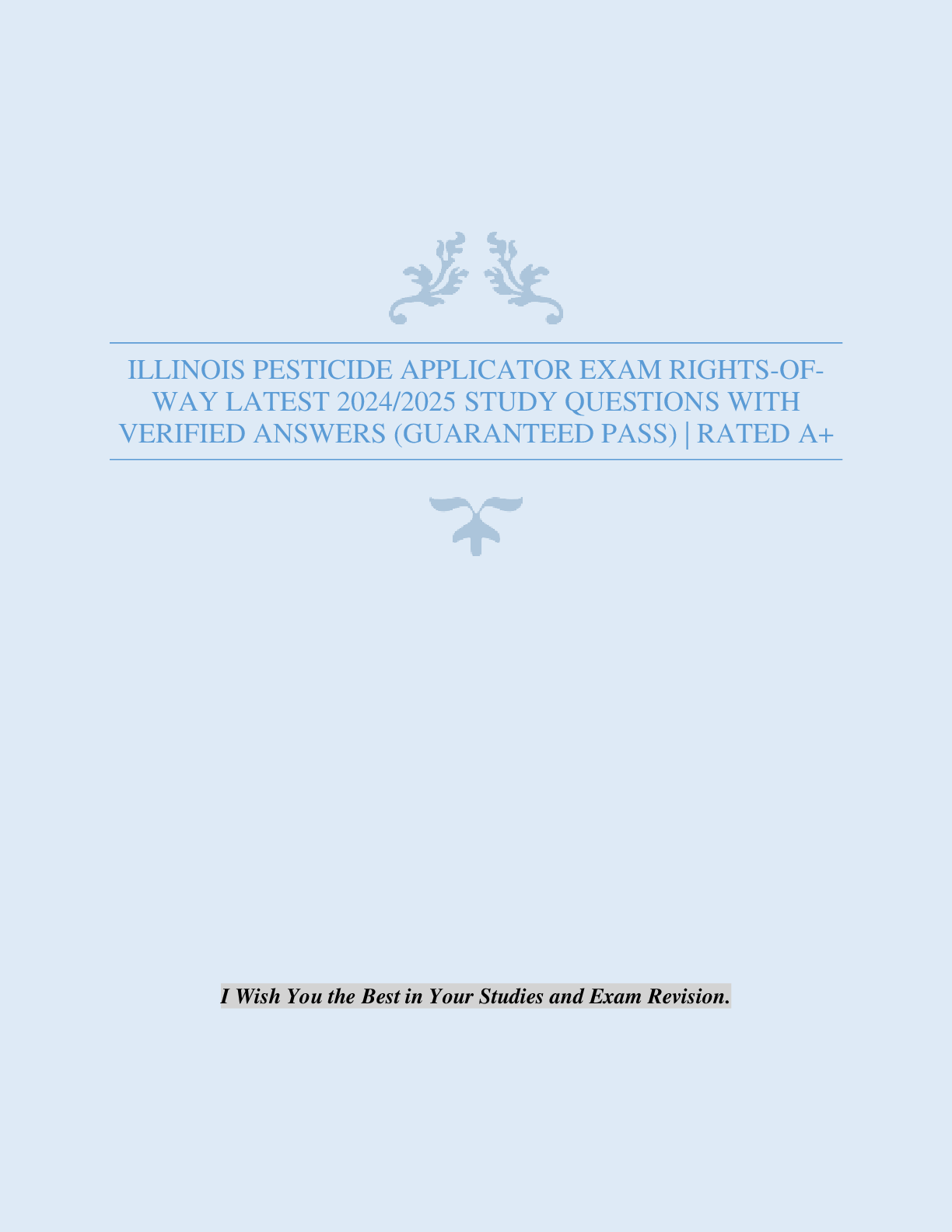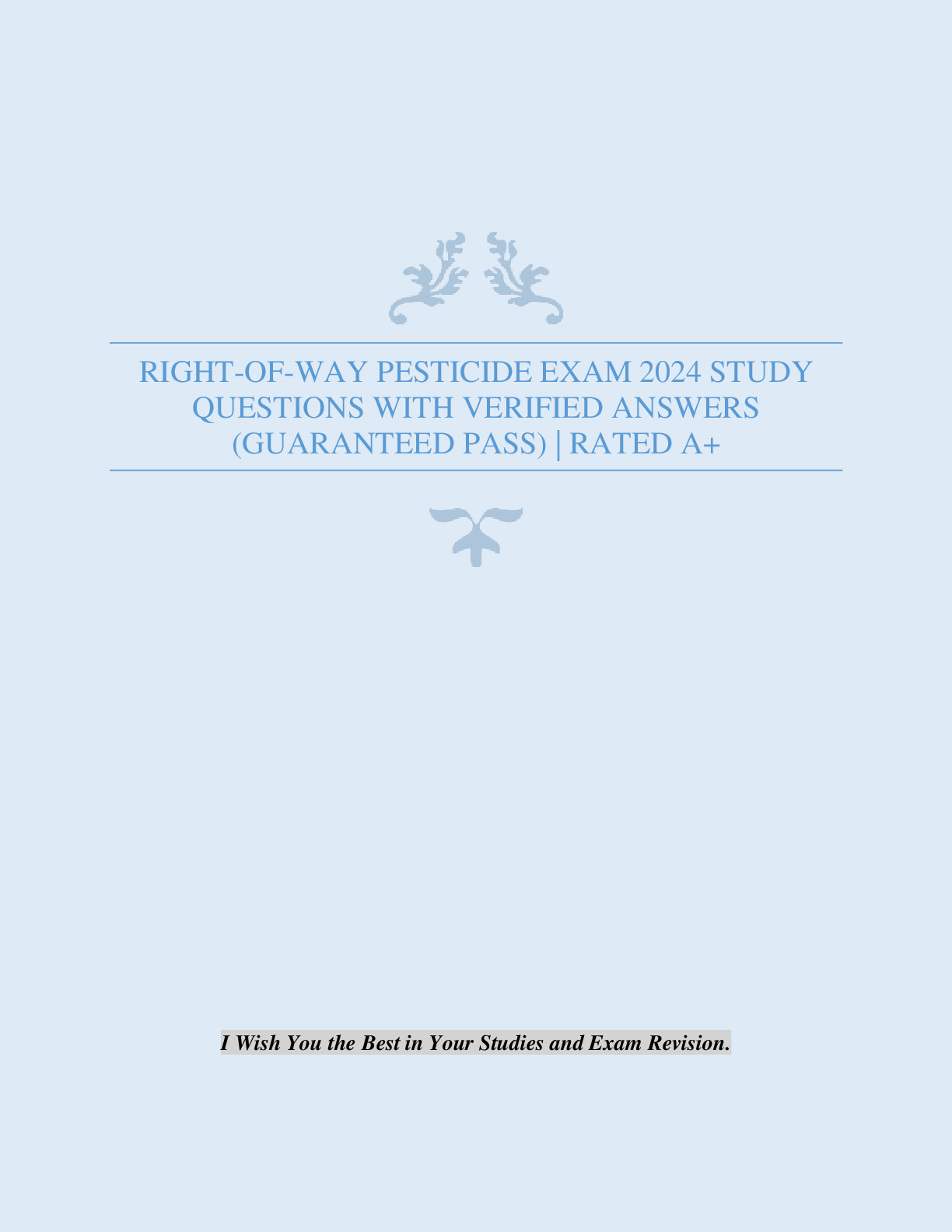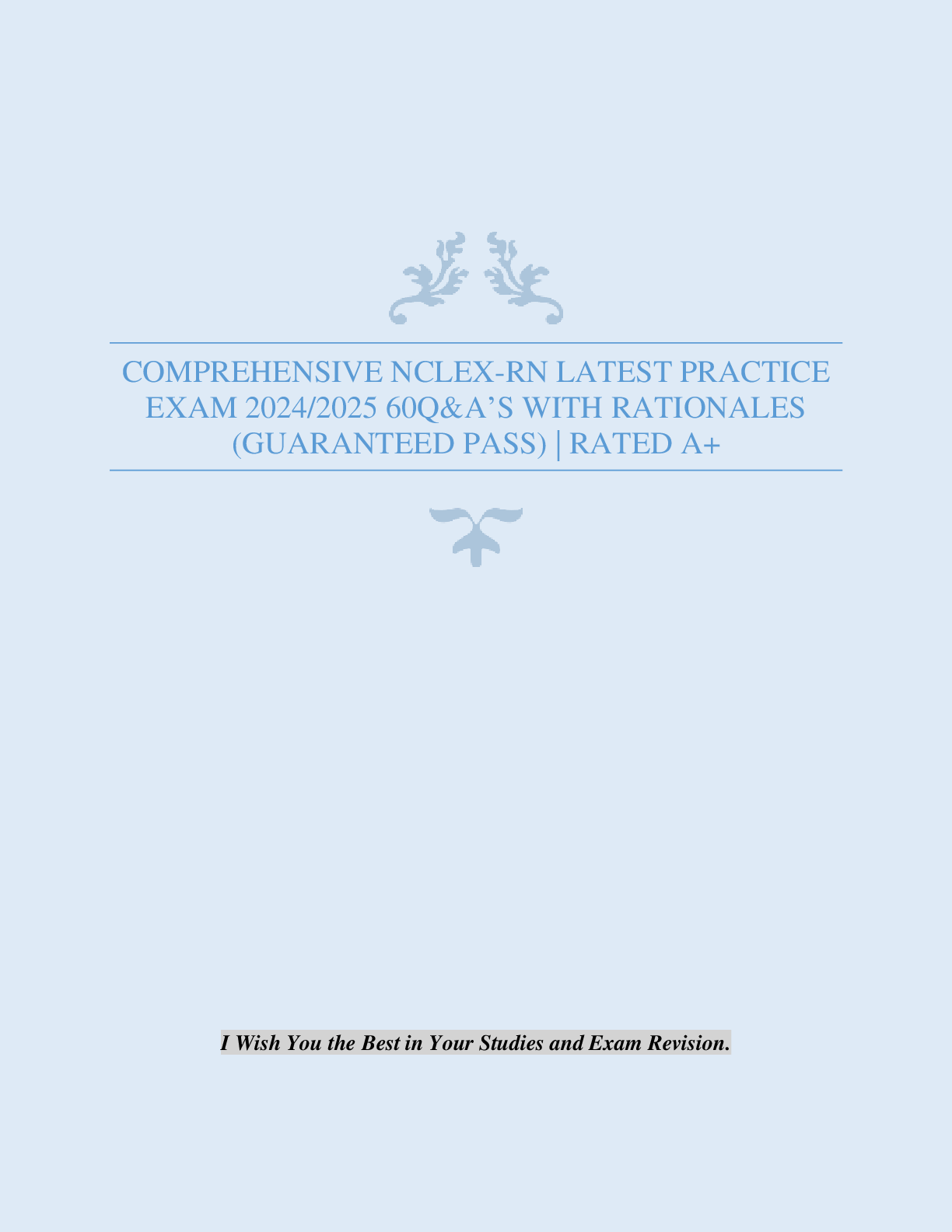Pharmacology > EXAM > NURSING PHARMACOLOGY NCLEX EXAM QUIZ #2 LATEST EXAM WITH 50 Q&A’S WITH RATIONALES (GUARANTEED PASS (All)
NURSING PHARMACOLOGY NCLEX EXAM QUIZ #2 LATEST EXAM WITH 50 Q&A’S WITH RATIONALES (GUARANTEED PASS) | RATED A+
Document Content and Description Below
1. Chris asks the nurse whether all donor blood products are cross-matched with the recipient to prevent a transfusion reaction. Which of the following always require cross-matching? A. Granuloc... ytes B. Platelets C. Plasma D. Packed red blood cells Correct Answer: D. Packed red blood cells. Red blood cells contain antigens and antibodies that must be matched between donor and recipient. The blood products in options 2-4 do not contain red cells. Thus, they require no crossmatch. The hemoglobin in red blood cells binds oxygen and is the main source of oxygen delivery in the body. A single unit of packed red blood cells is roughly 350 mL in volume and contains about 250 mg of iron. Option A: Neutrophils, basophils, and eosinophils are all granulocytes. These cells also all have azurophilic granules (lysosomes) and specific granules that contain substances unique to each cell’s function. Histologically, granulocytes can be distinguished from one another by the morphology of their nucleus, their size, and how their granules stain. Option B: Platelets maintain hemostasis by adhering to the vascular endothelium, aggregating with other platelets, and initiating the coagulation cascade, leading to the production of a fibrin mesh, which effectively prevents significant blood loss. Option C: Plasma, also known as blood plasma, appears light-yellowish or strawcolored. It serves as the liquid base for whole blood. Whole blood minus erythrocytes (RBCs), leukocytes (WBCs), and thrombocytes (platelets) make up the plasma. Serum, sometimes mistakenly considered synonymous with plasma, consists of plasma without fibrinogen. Plasma contains 91% to 92% of water and 8% to 9% of solids. 2. When performing an assessment about medication, the drug history should include: A. Complete vital signs. B. Client's goal of therapy. C. Reason for medication. D. Administration of OTC medications. Correct Answer: D. Administration of OTC medications The nurse should determine if the client is taking any other medications, especially OTC medications because their effects are often minimized. For some medical conditions, a list of previously tried medicines should also be included to help direct future prescribing (e.g. diseasemodifying anti-rheumatic drugs [DMARDs] for rheumatoid arthritis). Traditionally, obtaining a medication history has been undertaken solely by doctors, but pharmacists and suitably trained pharmacy technicians now play a vital role in this process. Other choices are an important part of the assessment, but choice D is the most accurate answer. Option A: Without an accurate medication history, prescribers may inadvertently make incorrect decisions about a patient’s treatment, causing harm if previously discontinued medicines are restarted, or if current medicines are omitted or prescribed at the wrong dose for the patient. Option B: There is no national guidance on which source is the ‘gold standard’ for obtaining reliable medication history, nor is there a consensus on how many sources should be used, since all have advantages and disadvantages. Two or more sources are often required; however, one source will usually be sufficient if deemed reliable (e.g. patients that are usually fit and well and take no regular medication). Option C: Once an accurate medication history has been obtained, this information should be documented in the patient’s medical notes. The medical team should be informed if any changes to the inpatient prescription are required, ensuring a patient’s medicines prescribed on admission correspond to what the patient was taking before admission unless there are any deliberate changes. [Show More]
Last updated: 7 months ago
Preview 5 out of 60 pages

Loading document previews ...
Buy this document to get the full access instantly
Instant Download Access after purchase
Buy NowInstant download
We Accept:

Reviews( 0 )
$22.50
Can't find what you want? Try our AI powered Search
Document information
Connected school, study & course
About the document
Uploaded On
Jan 06, 2025
Number of pages
60
Written in
Additional information
This document has been written for:
Uploaded
Jan 06, 2025
Downloads
0
Views
17
